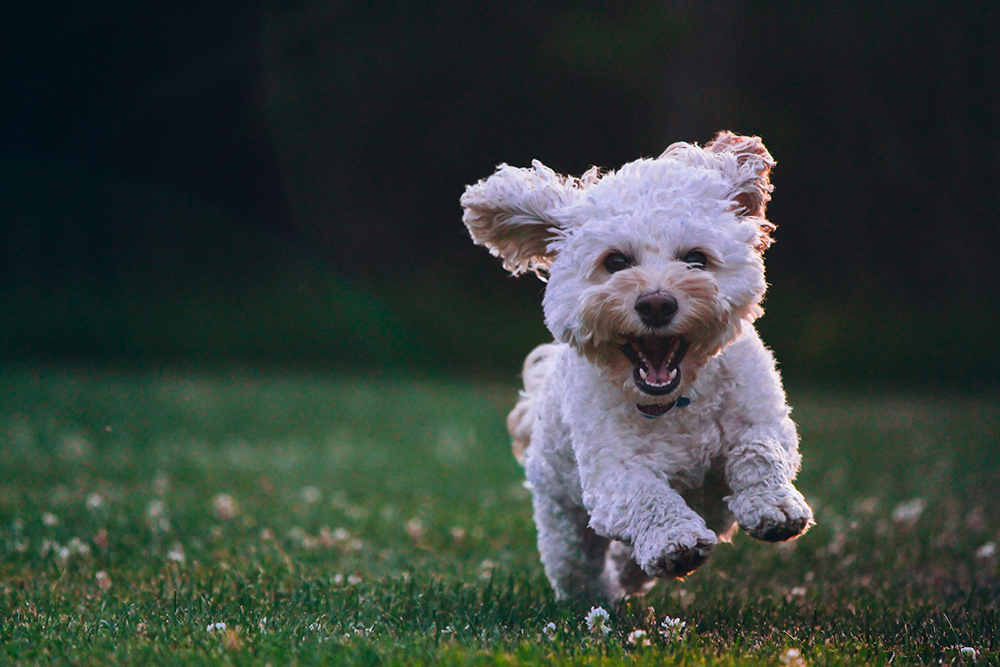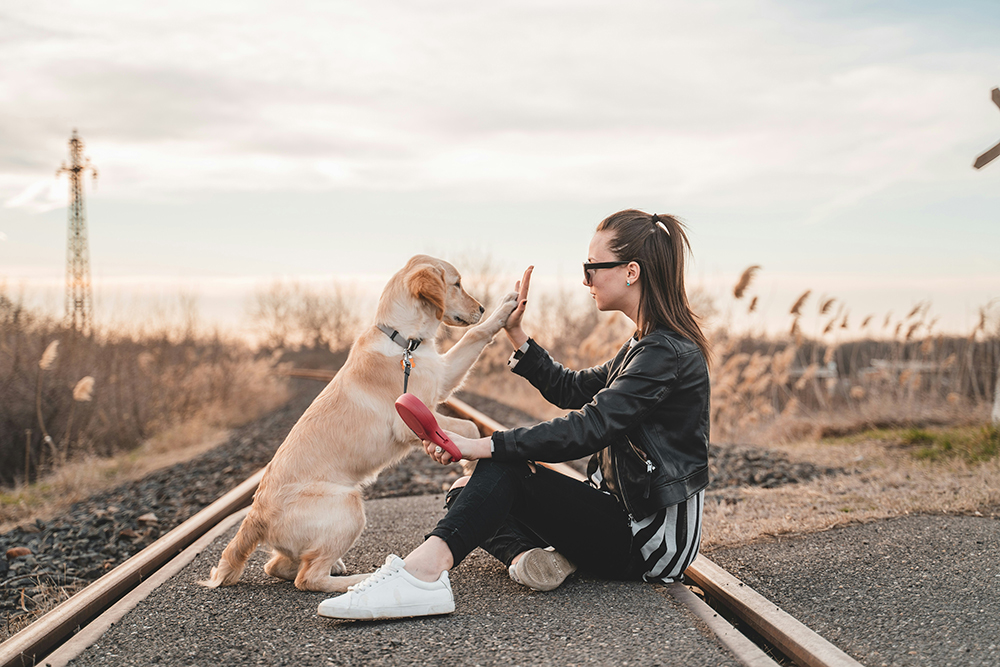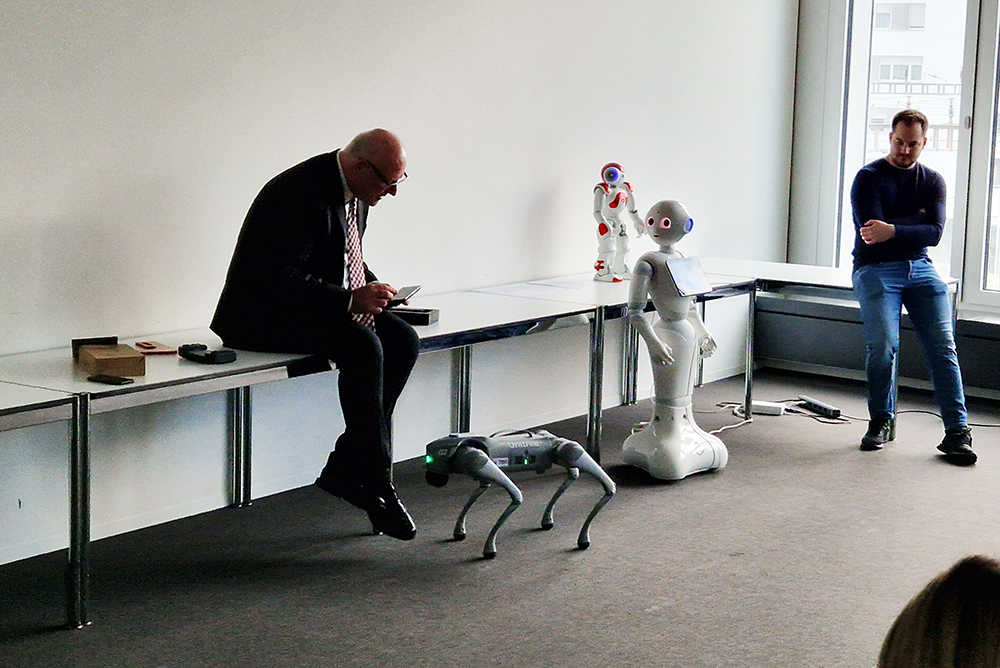“The Robodog Project: Bao Meets Pluto” examined how domestic dogs respond to the Unitree Go2 quadruped robot – nicknamed Bao by project initiator Prof. Dr. Oliver Bendel – and how their owners perceive such robots in shared public spaces. The project began in late March 2025 and was completed in early August 2025. The study addressed three questions: (1) How do dogs behaviorally respond to a quadruped robot across six conditions: stationary, walking, and jumping without an additional dog head, and stationary, walking, and jumping with an additional 3D-printed dog head? (2) What are owners’ expectations and concerns? (3) What regulatory frameworks could support safe integration? Twelve dogs were observed in six structured interaction phases; their behavior was video-coded using BORIS.Another dog participated in a preliminary test but not in the actual study. Pre-exposure interviews with eight owners, as well as an expert interview with a biologist and dog trainer, provided additional insights. Led by Selina Rohr, the study found most dogs were cautious but not aggressive. Curiosity increased during robot movement, while visual modifications had little impact. However, a 3D-printed dog head seemed to interest the dogs quite a bit when the robot was in standing mode. Dogs often sought guidance from their owners, underlining the role of human mediation. Owners were cautiously open but emphasized concerns around safety, unpredictability, and liability. The findings support drone-like regulation for robot use in public spaces.
The Robodog Project Starts
Robotic four-legged friends – often referred to as robot dogs – are becoming more and more widespread. As a result, they will also encounter more and more real dogs. The question is how to design, control, and program the robot in such a way that the animals do not overreact and cause no harm to robots, animals, or bystanders. As part of “The Robodog Project”, smaller dogs are to be confronted with a walking, running, and jumping Unitree Go2. The plan is to visit controllable environments such as dog training grounds and arrange meetings with dog owners. The findings will lead to suggestions for design and control. Robot enhancement can also play a role here. For example, hobbyists have produced heads for Unitree Go2 using a 3D printer, giving the robot a completely different look. Suggestions for programming will also be made. The project is due to start at the FHNW School of Business in March 2024. It is part of Prof. Dr. Oliver Bendel’s research in the field of animal-machine interaction.
Bao in Switzerland
From February 15 to 17, 2024, the elective module “Social Robots from a Technical, Economic and Ethical Perspective” by Prof. Dr. Oliver Bendel took place at the FHNW School of Business in Brugg-Windisch. This was the sixth time the course had been held and the first time it had taken place on this campus. The participants were mainly prospective business economists. A GPT called Social Robotics Girl, which is specialized in the topic, was available. A presentation by Claude Toussaint from Navel Robotics enriched the event. He spoke not only about the development of the model, but also about the financing of the company. Among the robots at the demo was Unitree Go2. It comes from the Social Robots Lab (SRL) privately funded by Oliver Bendel and is called Bao (Chinese for “treasure, jewel”) by him. The SRL also includes Alpha Mini, Cozmo, and Hugvie – and the voice-controlled Vector, which was not used in the lessons. When designing their own social robots, the students worked with image generators, this time mainly with DALL-E 3.


